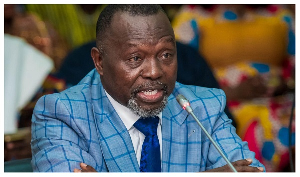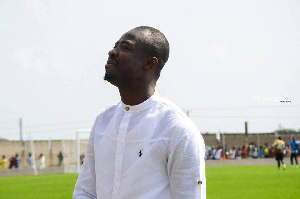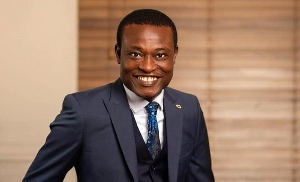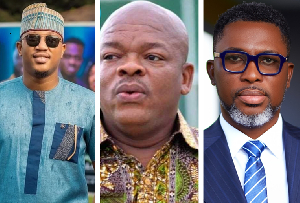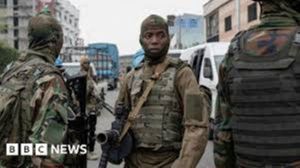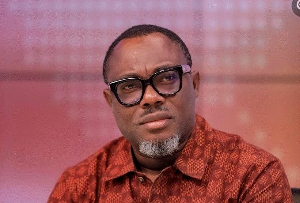Religion, democracy and human rights are interlinked, though different religions/governments do interpret this relationship in different ways.
The difficulty in discussing the relationship between democracy and religion abounds all over the world. Before Ghana embarked on the road to democracy in the early 1990s, President Rawlings’ PNDC administration was authoritative, with all its socio-political implications, though it was able to achieved 5% per annum economic growth for 5 consecutive years, thus the drafting of the 1992 constitution proceeded relatively quickly than under any other administration.
Ghana came out of the 1980s debt crisis far stronger than many countries in the sub-region. The “lost decade” was significant in many ways. By 1982 Ghana was bankrupt and could no longer continue to pay its foreign debt. The situation was exacerbated by mass exodus of skill Ghanaians from the homeland and expulsion of large number of Ghanaians in neighbouring countries to the motherland. The 1980s became a watershed in the history of this writer’s motherland. The crisis gave birth to Rawlings and his brand of “Castro/Che Guevara” type of revolution, which soon gave way to the IMF/World Bank stabilisation and structural adjustment programmes, intended to correct domestic economic problems that gave rise to the crisis. Ghana’s fast recovery has been equated to a “divine” intervention, for without Rawlings intervention, Ghana would have ended up like the rest of the countries in the neighbourhood (where gangsters parade corridors of power as “democrats”).
Some commentators, including this writer, attributed Ghana’s progress to good economic policies (Dr Kwesi Botchwey and K. Baah Wireadu) better government (President Rawlings and President Kufuor) and better internal security. Although poverty in Ghana and the rest of the continent is still at the bottom of the world’s economic ladder, however no one can deny the massive improvements made over the last decade. In the 1980s, Ghana became the only country in sub-Saharan African to lose most of her skilled labour; today Ghana’s professionals are at the forefront of development in their homeland.
The regime pursued aggressive reforms in trade policy, fiscal policy, privatisation and banking, education and health. While countries around her stagnated, Ghana grew and became a member of “economic miracle” countries. Some analysts, including this writer, asserted the timing of reforms banking and privatisation and large injection of funds from nationals abroad account for the brilliant recovery that Ghana made. Having been striped off of her skilled and able bodied labour through migration, Ghana’s path to economic recovery was more than a “miracle”.
In the “mist of heavy storms” Ghanaians found faith in their shared heritage and God. Coming out of a “trapped downward spiral of poverty and disease”
The 1992 constitution was drafted by all sections of the people of Ghana, including artisans, hair dressers, fitting mechanics to lawyers, accountants, men and women of the security services, student leaders, farmers, fishermen, doctors, and market women, amongst others. The preparation of the ground rules for the drafting of the constitution was developed by political thinkers whose political ideas and practices are to bridge the gap between the northern half of the country and the southern half. This transformation of political thoughts (power to the people), which has been developing in Ghana since the mid 1980s is marked by a paradigm shift that is more substance oriented.
Thus, the 1992 constitution, like the previous constitutions, demonstrates the importance of religion’s pivotal position in the life of the state (social, economic and political), making it impossible to separate religious life from that of the state. The same constitution also gave prominence to the institution of Chieftaincy, and together with the presidency was made the custodians of the land.
The 1992 constitution, whether consciously or unconsciously made it difficult to separate the country from influence of religious values. In an earlier article, this writer stated that Ghana is both “liberal and considerate” but underpin by religious values and thus, separating the country from God is impossible.
Tacking the first fact, since the rise of modernity (Information technology age and the rise of large middle class/international division of labour) and de-secularisation, with rapid rise in education, many believe religion would be confined to the private sphere of life. This notion of thinking is more is in line with the Western European way of life (secular- modernity’s political of liberal democracy) while United States is “seen” as religious. The 1990s and early 2000s brought high hopes for the people of Ghana. The second phase of Dr Kwame Nkrumah’s 7 Year Development Plan was designed by technocrats, who took into account the needs of every region in the country, widespread literacy and improved health care. The 7 year Development designers paid much attention to emerging language of the communities – religion, which has emerged as a social and political reality. The 7 Year Development Plan was in favour of broader concept of development that includes a religious dimension. The development going on in the country emanates from the original 7 Year Development Plan – a stadium for every region (4 built), University of Development Studies/Medical School (Northern Ghana - done) school of medical sciences for Cape Coast (in operation) and Winneba (still a dream?) University of Agriculture for Volta Region (Papa Kwesi Nduom and Nana Akuffo Addo have pledge to establish the university with Veterinary and psychiatry schools). The preamble of the constitution, the national anthem and the pledge of Allegiance all points to God as the supreme guardian of the country. Throughout the country’s existence as a sovereign state, religion has always played a public role.
The golden decades of the late 1950s and early 1960s did offer the promise of better conditions of living for many Ghanaians through Dr Nkrumah’s state-building and economic growth under the first phase of his development plan. With the discovery of oil, the coming next decades looks very promising for the motherland.
In the early 1990s, Ghanaian policy makers realise that religion and chieftaincy have positive roles to play in development, thus assimilating them into the development agenda, which became known as the Vision 2020 (an enhanced version of Dr Nkrumah’s 7 Year Development Plan). Finally the government is giving greater scope to the role of religion as a potential agent of development. Just like the national anthem and the pledge of allegiance, the 7 year Development Plan not only considers intellectual and social resources but spiritual ones, which Dr Nkrumah believe forms part of nation building and cooperation (Yen Ara Asasi Ni –The land of our birth). Dr Nkrumah invested time, energy and resources to build a country of different tribes, but united under God and Country (secondary “boarding” school system).
With the rise of fundamentalism, intolerance, religious and tribal/ethnic violence elsewhere on the continent, the peace Ghana is enjoying can be attributed to the change in demography and the institution of Chieftaincy (God Bless Nananom) which has helped to create a more cohesive society where all religions and tribes, including those who are not religious, are respected and protected.
Peter Jeffrey London.
Opinions of Saturday, 20 September 2008
Columnist: Jeffrey, Peter






